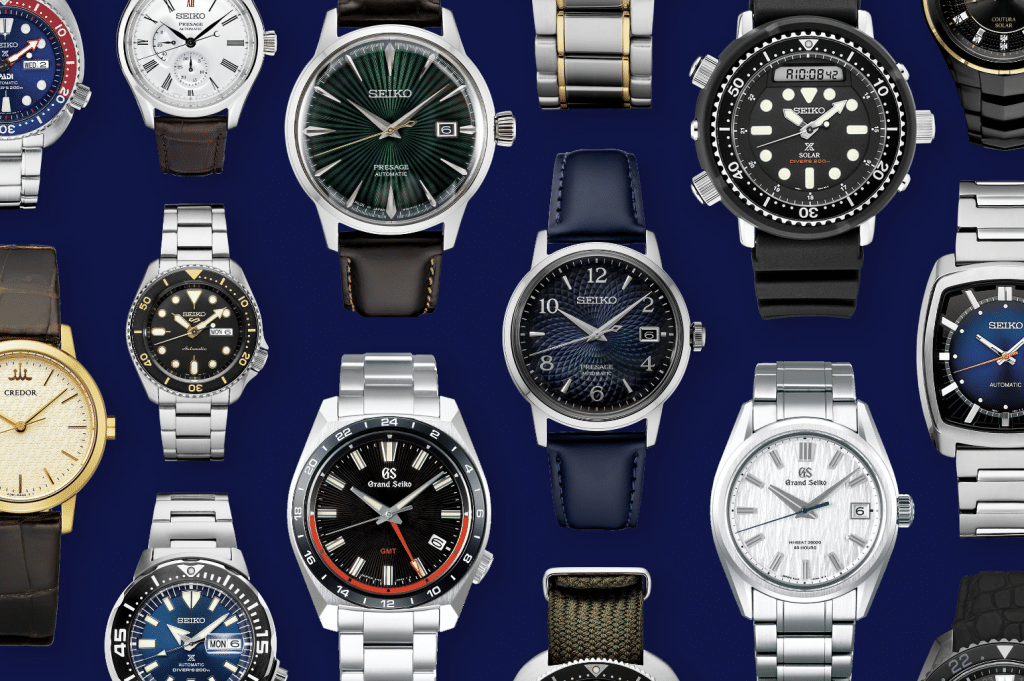When it comes to valuing watches, there are numerous factors to consider. Whether you’re interested to buy watches online, it’s essential to understand how to determine the value of a watch. In this blog post, we’ll explore several factors that affect a watch’s value, including brand, model, condition, materials, limited edition or unique features, and provenance.
Brand
One of the most significant factors that affect the value of a watch is the brand. The brand can make a significant difference in the value of a watch, as some brands are more sought after than others. For example, a Rolex watch is typically more valuable than a lesser-known brand, even if the two watches have similar features and materials.
Factors that affect a brand’s value include its history, reputation, and rarity. A brand with a long and respected history is often more valuable than a newer brand without a well-established reputation. Similarly, a brand with a reputation for producing high-quality watches will typically be more valuable than a brand with a lesser reputation. Finally, the rarity of the brand can also impact its value, as some brands may produce only a limited number of watches each year.
Model
In addition to the brand, the model of a watch is also important when it comes to determining its value. The age, design, and popularity of the model can all impact its value.
Age is a particularly significant factor when it comes to valuing watches. In general, older watches are often more valuable than newer watches, especially if they are in good condition. This is because older watches are typically rarer and more difficult to find, which makes them more valuable to collectors.
Design and aesthetics are also important when it comes to valuing watches. Some designs are simply more appealing than others, which can impact the value of a watch. Additionally, watches with unique features or innovations may be more valuable than watches without those features.
Finally, the popularity of a model can also impact its value. Watches that are in high demand among collectors may be more valuable than watches that are less popular.
Condition
The condition of a watch can impact its value significantly, as a watch that is in poor condition will typically be worth less than a watch that is in excellent condition.
Some components that can impact the condition of a watch include its maintenance history, wear and tear, restoration or repair, and originality. A watch that has been well-maintained and cared for will typically be worth more than a watch that has been neglected or poorly maintained.
Similarly, a watch that has been restored or repaired may be worth less than a watch that is completely original, depending on the quality of the restoration or repair work.
Materials
The materials used in a watch can also impact its value. Watches made from precious metals, gemstones, and other high-quality materials are typically more valuable than watches made from lesser-quality materials.
For example, a watch made from 18k gold will typically be more valuable than a watch made from stainless steel, even if the two watches have similar features and designs. Similarly, a watch with diamonds or other precious gemstones may be more valuable than a watch without those features.
Limited Edition or Unique Features
Watches with limited edition runs or unique features can be particularly valuable to collectors. Limited edition watches are typically produced in limited quantities, which makes them rarer and more valuable. Additionally, watches with unique features, such as a rare dial or a special movement, may also be more valuable than watches without those features.
The rarity, exclusivity, and unique features of limited edition watches are among the factors that can affect their value. The rare or exclusive the watch, the more valuable it is likely to be. Watches with special features or innovations that set them apart from other watches may be more valuable due to their uniqueness and rarity.
Provenance
Provenance is an important factor to consider when determining the value of a watch. Provenance refers to the watch’s history and ownership, including its previous owners, its use, and any notable events associated with the watch.
Watches with an interesting provenance, such as those owned by famous individuals or used in important events, can be particularly valuable to collectors. For example, a watch owned by a celebrity or historical figure may be worth significantly more than a similar watch without that association.
In addition, watches with a clear and documented history of ownership and use may be more valuable than watches with an unknown history. Documentation, such as receipts, certificates of authenticity, and previous owner information, can help to establish a watch’s provenance and increase its value.
Valuing a watch can be a complex process that involves considering several factors, including brand, model, condition, materials, limited edition or unique features, and provenance. By understanding how these factors impact a watch’s value, you can better determine the value of a watch and make informed decisions when buying or selling watches.
If you’re looking to sell watches online, it’s important to provide accurate and detailed information about the watch, including its brand, model, condition, materials, and any unique features or provenance. Providing high-quality photos of the watch can also help to attract potential buyers and increase its value.
If you’re looking to buy watches online, be sure to research the watch thoroughly and consider all of the factors that impact its value. Look for reputable sellers or websites that provide accurate and detailed information about the watch such as Value Your Watch.
Valuing a watch requires a combination of knowledge, research, and attention to detail. By understanding the factors that impact a watch’s value, you can make informed decisions when buying or selling watches and ensure that you’re getting the best possible value for your timepiece.

